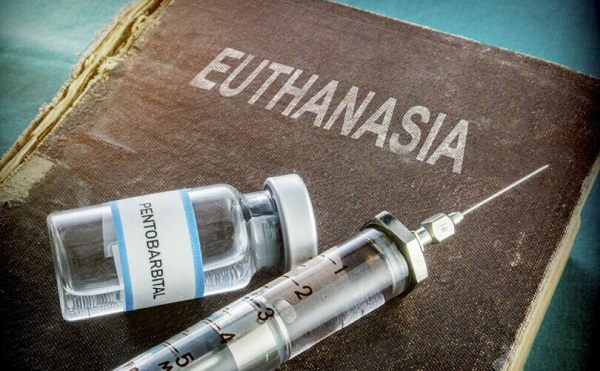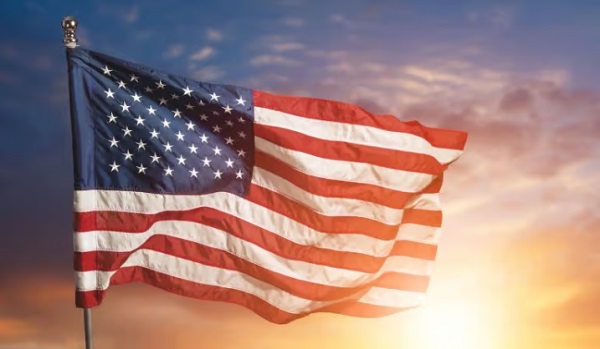Alberta
Five Albertans die from COVID-19 today. Crack down on mandatory self-isolation. Provincial update (March 30)

From the Province of Alberta
Update 17: COVID-19 pandemic in Alberta (March 30 at 5:30 p.m.)
Five more Albertans have died from COVID-19, bringing the total to eight deaths in the province.
An additional 29 cases of COVID-19 have been confirmed, bringing the total number of cases in the province to 690. While these numbers are lower than in recent days, this may be attributed to fewer lab tests completed due to challenges with lab testing supplies. Lab testing is now back to full capacity.
Latest updates
Cases have been identified in all zones across the province:
-
- 422 cases in the Calgary zone
- 164 cases in the Edmonton zone
- 46 cases in the Central zone
- 45 cases in the North zone
- 12 cases in the South zone
- One case in a zone that is yet to be confirmed
- Of these cases, there are currently 28 people in hospital, with 11 admitted to intensive care units (ICU).
- In total, there have been 47 hospitalizations, with 17 admissions to ICUs.
- Sixty-five of the 690 cases are suspected of being community acquired.
- There are now a total of 94 confirmed recovered cases.
- There have been a total of five new deaths reported since the March 29 report – two in the Edmonton zone, two in the Calgary zone, and one in the North zone. There are now a total of eight deaths in Alberta.
- Two people from the McKenzie Towne Long Term Care have passed away. Forty-one people are confirmed to have tested positive for the virus at the facility – 36 are residents and five are staff.
Linkages have been made to this outbreak over the last few days and the reported cases are not all from the last 24 hours.
- The person who tested positive at Edmonton’s Rosedale on the Park facility has also died.
- The Edmonton zone recently reported an outbreak at Shepherd’s Care Kensington. The number of cases remains at four in that facility.
- Aggregate data, showing cases by age range and zone, as well as by local geographical areas, is available online at alberta.ca/covid19statistics.
- All Albertans need to work together to help prevent the spread and overcome COVID-19.
- Restrictions remain in place for close-contact businesses, dine-in restaurants and non-essential retail services. A full list of restrictions is available online.
- Albertans are prohibited from attending gatherings of more than 15 people, and they must continue to observe two metres of social distancing. This includes events both indoors and outdoors, such as family gatherings, weddings and funerals. Further details are available online.
Exploring faster lab testing
Alberta Health Services (AHS) is partnering with a Canadian technology company to provide rapid testing for COVID-19 for Alberta.
Spartan Bioscience is developing a COVID-19 test kit that would allow AHS lab workers to test for suspected COVID-19 in rural communities, rather than needing to send test samples to the two centralized laboratories in Edmonton and Calgary. More details are available in this AHS news release.
Isolation rules
To align with new federal rules under the Quarantine Act, Albertans under mandatory self-isolation are now required to remain inside and can only go for walks on their own property, such as their backyard, for the duration of their self-isolation.
- They can no longer go for walks in their neighbourhoods or through parks until their self-isolation period ends.
- People who live in apartment buildings or highrises must stay inside and cannot use the elevators or stairwells to go outside.
This applies to everyone in mandatory self-isolation – those who are feeling well and those who have symptoms of COVID-19 including cough, fever, shortness of breath or a runny nose.
Albertans are legally required to self-isolate for 14 days if they:
- returned from travel outside of Canada after March 12
- are a close contact of a person who tested positive for COVID-19 (provides care, lives with or has close physical contact, or comes into direct contact with infectious body fluids)
If you become sick during this time, you must self-isolate for an additional 10 days from the beginning of symptoms or until you are feeling well, whichever takes longer. Read more about how to self-isolate.
Charities and non-profit organizations
Eligibility criteria for emergency funding for charities and not-for-profit organizations impacted by COVID-19 is available at https://www.alberta.ca/emergency-funding-for-charities-and-not-for-profit-organizations.aspx.
List of essential workplaces
The list of essential workplaces that can continue to operate in Alberta can be found online.
Mental health supports
AHS has boosted its service to help Albertans should they need to speak with someone about mental health concerns.
If Albertans call the Mental Health Help Line at 1-877-303-2642 or the Addiction Help Line at 1-866-332-2322 between 7 a.m. and 11 p.m., seven days a week, they will be connected directly to a dedicated team of AHS addiction and mental health staff.
This will allow the 811 health team to focus on COVID-19 calls during the day and improve wait times for others needing telephone advice. Calls placed from 11 p.m. to 7 a.m. will continue to be routed through 811.
Emergency isolation supports
Emergency isolation supports are available for Albertans who are self-isolating or who are the sole caregivers for someone in self-isolation, and have no other source of income. Applicants can view eligibility criteria and apply at alberta.ca. To carefully manage the flow of applications, we are periodically closing access to MADI and the emergency isolation support. We will provide daily updates about system availability.
There is no formal deadline for emergency isolation support. This is a temporary program to bridge the gap until the Federal Emergency Care Benefit is available.
Quick facts
- The most important measures that Albertans can take to prevent respiratory illnesses, including COVID-19, is to practise good hygiene.
- This includes cleaning your hands regularly for at least 20 seconds, avoiding touching your face, coughing or sneezing into your elbow or sleeve, disposing of tissues appropriately.
- Anyone who has health concerns or is experiencing symptoms of COVID-19 should complete an online COVID-19 self-assessment.
- For recommendations on protecting yourself and your community, visit alberta.ca/COVID19.
Alberta
Alberta government announces review of Trudeau’s euthanasia regime

From LifeSiteNews
Alberta announced it ‘is reviewing how MAID is regulated to ensure there is a consistent process as well as oversight that protects vulnerable Albertans, specifically those living with disabilities or suffering from mental health challenges.’
The Conservative provincial government of Alberta is pushing back against the Canadian federal government’s continued desire to expand euthanasia in the nation, saying it will launch a review of the legislation and policies surrounding the grim practice, including a period of public engagement.
The United Conservative Party (UCP) government under Premier Danielle Smith in a press release said the province needs to make sure that robust safeguards and procedures are in place to protect vulnerable people from being coerced into getting euthanatized under the MAiD (Medical Assistance in Dying) program.
“Alberta’s government is reviewing how MAID is regulated to ensure there is a consistent process as well as oversight that protects vulnerable Albertans, specifically those living with disabilities or suffering from mental health challenges,” said the government Monday.
The government said a online survey regarding MAiD open to all Albertans who have opinions about the deadly practice will be available until December 20.
“We recognize that medical assistance in dying is a very complex and often personal issue and is an important, sensitive and emotional matter for patients and their families,” said Alberta’s Minister of Justice and Attorney General Mickey Amery.
Amery said it is important to ensure this process has the “necessary supports to protect the most vulnerable.”
The government said that it will also be engaging with academics, medical associations, public bodies, as well as religious organizations and “regulatory bodies, advocacy groups” regarding MAiD
The government said all information gathered through this consultation will “help inform the Alberta government’s planning and policy decision making, including potential legislative changes regarding MAID in Alberta.”
When it comes to MAiD, Prime Minister Justin Trudeau’s Liberal government sought to expand it from the chronically and terminally ill to those suffering solely from mental illness.
However, in February, after pushback from pro-life, medical, and mental health groups as well as most of Canada’s provinces, the federal government delayed the mental illness expansion until 2027.
Alberta’s Minister of Mental Health and Addiction Dan Williams said that the UCP government has been “clear” that it does not “support the provision of medically assisted suicide for vulnerable Albertans facing mental illness as their primary purpose for seeking their own death.”
“Instead, our goal is to build a continuum of care where vulnerable Albertans can live in long-term health and fulfilment. We look forward to the feedback of Albertans as we proceed with this important issue,” he noted.
The Alberta government said that as MAiD is “federally legislated and regulated” it is main job will be to try and make sure that it protects “vulnerable individuals” as much as possible.
Alberta’s Minister of Health Adriana LaGrange reaffirmed that the Alberta government “does not support expanding MAID eligibility to include those facing depression or mental illness and continues to call on the federal government to end this policy altogether.”
The number of Canadians killed by lethal injection under the nation’s MAiD program since 2016 stands at close to 65,000, with an estimated 16,000 deaths in 2023 alone. Many fear that because the official statistics are manipulated the number may be even higher.
To combat Canadians being coerced into MAiD, which LifeSiteNews has covered, the combat pro-life Delta Hospice Society (DHS) is offering a free “Do Not Euthanize Defense Kit” to help vulnerable people “protect themselves” from any healthcare workers who might push euthanasia on the defenseless.
Alberta
Early Success: 33 Nurse Practitioners already working independently across Alberta

Nurse practitioners expand primary care access |
The Alberta government’s Nurse Practitioner Primary Care program is showing early signs of success, with 33 nurse practitioners already practising independently in communities across the province.
Alberta’s government is committed to strengthening Alberta’s primary health care system, recognizing that innovative approaches are essential to improving access. To further this commitment, the Nurse Practitioner Primary Care Program was launched in April, allowing nurse practitioners to practise comprehensive patient care autonomously, either by operating their own practices or working independently within existing primary care settings.
Since being announced, the program has garnered a promising response. A total of 67 applications have been submitted, with 56 approved. Of those, 33 nurse practitioners are now practising autonomously in communities throughout Alberta, including in rural locations such as Beaverlodge, Coaldale, Cold Lake, Consort, Morley, Picture Butte, Three Hills, Two Hills, Vegreville and Vermilion.
“I am thrilled about the interest in this program, as nurse practitioners are a key part of the solution to provide Albertans with greater access to the primary health care services they need.”
To participate in the program, nurse practitioners are required to commit to providing a set number of hours of medically necessary primary care services, maintain a panel size of at least 900 patients, offer after-hours access on weekends, evenings or holidays, and accept walk-in appointments until a panel size reaches 900 patients.
With 33 nurse practitioners practising independently, about 30,000 more Albertans will have access to the primary health care they need. Once the remaining 23 approved applicants begin practising, primary health care access will expand to almost 21,000 more Albertans.
“Enabling nurse practitioners to practise independently is great news for rural Alberta. This is one more way our government is ensuring communities will have access to the care they need, closer to home.”
“Nurse practitioners are highly skilled health care professionals and an invaluable part of our health care system. The Nurse Practitioner Primary Care Program is the right step to ensuring all Albertans can receive care where and when they need it.”
“The NPAA wishes to thank the Alberta government for recognizing the vital role NPs play in the health care system. Nurse practitioners have long advocated to operate their own practices and are ready to meet the growing health care needs of Albertans. This initiative will ensure that more people receive the timely and comprehensive care they deserve.”
The Nurse Practitioner Primary Care program not only expands access to primary care services across the province but also enables nurse practitioners to practise to their full scope, providing another vital access point for Albertans to receive timely, high-quality care when and where they need it most.
Quick facts
- Through the Nurse Practitioner Primary Care Program, nurse practitioners receive about 80 per cent of the compensation that fee-for-service family physicians earn for providing comprehensive primary care.
- Compensation for nurse practitioners is determined based on panel size (the number of patients under their care) and the number of patient care hours provided.
- Nurse practitioners have completed graduate studies and are regulated by the College of Registered Nurses of Alberta.
- For the second consecutive year, a record number of registrants renewed their permits with the College of Registered Nurses of Alberta (CRNA) to continue practising nursing in Alberta.
- There were more than 44,798 registrants and a 15 per cent increase in nurse practitioners.
- Data from the Nurse Practitioner Primary Care Program show:
- Nine applicants plan to work on First Nations reserves or Metis Settlements.
- Parts of the province where nurse practitioners are practising: Calgary (12), Edmonton (five), central (six), north (three) and south (seven).
- Participating nurse practitioners who practise in eligible communities for the Rural, Remote and Northern Program will be provided funding as an incentive to practise in rural or remote areas.
- Participating nurse practitioners are also eligible for the Panel Management Support Program, which helps offset costs for physicians and nurse practitioners to provide comprehensive care as their patient panels grow.
Related information
-

 Brownstone Institute2 days ago
Brownstone Institute2 days agoThe Most Devastating Report So Far
-

 Business2 days ago
Business2 days agoCarbon tax bureaucracy costs taxpayers $800 million
-

 ESG1 day ago
ESG1 day agoCan’t afford Rent? Groceries for your kids? Trudeau says suck it up and pay the tax!
-

 Daily Caller1 day ago
Daily Caller1 day agoLos Angeles Passes ‘Sanctuary City’ Ordinance In Wake Of Trump’s Deportation Plan
-

 John Stossel1 day ago
John Stossel1 day agoGreen Energy Needs Minerals, Yet America Blocks New Mines
-

 COVID-192 days ago
COVID-192 days agoDr. McCullough praises RFK Jr., urges him to pull COVID shots from the market
-

 Alberta1 day ago
Alberta1 day agoProvince considering new Red Deer River reservoir east of Red Deer
-

 MAiD2 days ago
MAiD2 days agoOver 40% of people euthanized in Ontario lived in poorest parts of the province: government data






